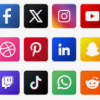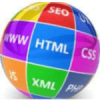Menu
Marketing on Digital Platform







Digital marketing is the key factor at present for for any product or service to be acceptable and to be successful to its stakeholders. It plays a remarkable role from inception to reach in pick position and retain the expected position among the target people for a consumer product, services, business organisation, public figure, media person, etc. Digital marketing is defined by using numerous digital tactics and channels to connect with customers where they spend much of their time. Digital marketing is performed thorough various platforms on online. Websites, apps, mobile devices, social media, search engines, and other digital means are used in digital marketing at all time to achieve optimum results to promote and sell products and services. Digital marketing involves many of the same principles as traditional marketing and is often considered an additional way for companies to approach consumers and understand their behavior. Companies often combine traditional and digital marketing techniques in their strategies. Social media has become the most popular platform in digital world to interact with one another on individual, group, regional, national, international, etc. basis through text, image, audio, chat, video, etc. on various matter. For these it has multi-dimensional impact in the society as well as in the world in various ways in various matters. Digital marketing started to become popular with the widespread adoption of the internet in the 1990s.
Marketing professionals report spending steadily more of their budgets on digital marketing methods, as digital marketing is in rising trend since 2015. While reducing spending on traditional marketing outlets at the same time. This is because consumers are increasingly present on online channels, giving businesses more opportunities to reach their ideal customers, all day, every day. These opportunities have been created for business and others by using following platforms as Digital Marketing platform considering various dimension of marketing necessities.- Social Media
- Influencer Marketing
- Content Marketing
- Email Marketing
- Search Engine Optimization (SEO)
- Pay-per-click (PPC)
- Affiliate Marketing
- Mobile marketing
- Marketing Automation Platform
- Native Advertising
A brief description about each of the above is given below:
Social Media as Digital Marketing Platform:
Presently consumers and beneficiaries are highly reliant on social media platforms such as Facebook, Tik Tok, X, LinkedIn, Instagram, Snapchat, Youtube, etc. For this brands are needed to be active across multiple social media. For conducting digital marketing in social media followings are needed to be considered:- • On an average, a consumer has about 8 social media accounts.
- • An adult on an average is engaged on social media 2 hours and 22 minutes per day i.e. almost 2.5 hours and a conversion is created.
- • There are 7.21 smartphones are in use of which are used by 4.88 billion users people. According to the latest data from DataReportal, as of 2024, there are approximately 5.04 billion active social media users worldwide.
- • People spend about 1/7th of their waking time on social platforms.
- • 64% of consumers want brands to connect with them on social – this is practically an invitation to interact, and ultimately, convert.
Influencer as Digital Marketing platform:
In this platform marketing is performed digitally by making partners to celebrities, sites, or others that are considered experts in their field, and that share similar values. After that brands can reach these influencers’ followers with branded content and offers. This is one of the successful platform for digital marketing as reported by its users.
Email Marketing as Digital Marketing Platform:
Email marketing is the act of sending message for campaigning to allow organizations to stay connected with prospects and customers typically to a group of people, using email. In its broadest sense, every email sent to a potential or current customer could be considered email marketing. It involves using email to send advertisements, request business, or solicit sales or donations. The term usually refers to sending email messages with the purpose of enhancing a merchant’s relationship with current or previous customers, encouraging customer loyalty and repeat business, acquiring new customers or convincing current customers to purchase something immediately, and sharing third-party ads. If an individual has interacted with a few of branded touchpoints – like an email offer for 10% off the items they have been considering, or free shipping – that little extra incentive could easily tip the scales from an “abandoned cart” to a completed purchase. Nearly 60% of consumers say that email plays a role in their purchase decisions. Furthermore, transactional emails – emails that help a customer do something, like complete a purchase or reset a login – are more likely to be opened by subscribers. Email marketing is significantly cheaper and faster than traditional mail, mainly because with email, most of the cost falls on the recipient. Automation tools make it easier to schedule and send emails at specific times or based on user actions, saving time and effort.Content Marketing as Digital Marketing Platform:
The goal of content marketing is to reach potential customers through the use of written, visual, or video content that interests them. That content is usually published on a website and then promoted through social media, email marketing, search engine optimization, or even pay-per-click campaigns. Content marketing attempts to be more subtle than advertising, and the product or service the sponsor is attempting to market may or may not be conspicuously highlighted. Digital marketer creates written content, videos, and other marketing assets to answer the questions or provide the context to consumer awareness, consideration and decision stage of the buyer’s throughout journey.Search Engine Optimization(SEO) as Digital Marketing Platform:
Search engine optimization (SEO) describes a variety of techniques that companies use in an effort to increase traffic to their website and raise its position in search results. The higher a site appears on the search results page, the more likely consumers are to see it and potentially click to visit it. Search engine optimization, or SEO, is technically a marketing tool rather than a form of marketing in itself. It is often called “an art and a science.” Search engine optimization, or “SEO”, often goes hand-in-hand with content marketing. Pieces of content created by the business for their website, blog or other digital marketing platforms, can be written and posted online in such a way that they are more likely to be seen by prospective buyers or users searching for information on a certain topic those similar content are created by their competitors. This writing and posting strategy, and all the techniques and considerations it entails, is known as SEO, or “search engine optimization”, because the customer is using a search engine, such as Google, to find info about a product or service. Properly performed SEO of a content provides an effective marketing benefit for the concern business, organisations, entity, etc. Among internet users 53% of consumers say that they research their potential purchases using a search engine before making a buying decision, and 51% of smartphone users have discovered a new product or service via a search engine on their phones. Thus SEO plays a vital role as digital marketing platform to present it to prospective and targeted consumer/beneficiaries as well as for conversion.Pay-per-click as Digital Marketing Platform:
In digital platform Pay-per-click (PPC) is a form of marketing in which an amount is spent for advertising that allows purchase traffic in the search engine for their websites. Thus instead of paying a set amount to constantly run targeted ads on online marketing channels, marketer only pay for the ads when individuals interact with that. One of the most common types of PPC is search engine advertising, and because Google is the most popular search engine, many businesses use Google Ads for this purpose. In this marketing form ads are placed on websites or search engines such as Google and Microsoft Bing, and a fee has to pay by marketer for each time their ad is clicked on by user. Search engine algorithm prioritizes each available ad based on a number of factors, including ad quality, keyword relevance, landing page quality, bid amount, etc. PPC ads are then placed at the top of search engine result pages based on the factors above whenever a person searches for a specific query, while banner ads on websites usually have set prices. Every PPC campaign has certain target actions that viewers are meant to complete after clicking an ad. These actions are known as conversions, and that can be instant financial/buying or non-financial action. By making a purchase a conversion can be happened. A conversion can also be happened by visiting the website, registration, making a call, engaging in chat, etc. in the consequence of PPC ad.Affiliate Marketing as Digital Marketing Platform:
Affiliate marketing is a form in digital marketing that lets someone make money by promoting another person’s business. You could be either the promoter or the business who works with the promoter, but the process is the same in either case. Affiliate marketing involves working with outside individuals or companies under the agreement between merchant/organisations and marketer in which marketer promote the product, service, registration, calling, visit, etc. of the merchant/organisation in exchange for a commission from each conversion that can be attributed to their efforts. Affiliate marketers sometimes choose to review the products of just one company, perhaps on a blog or other third-party site. Others have relationships with multiple merchants. For performing affiliate marketing the marketer has to make a connection with the merchant or others. Digital channels can be used those are designed to connect affiliates with retailers, or marketer can start or join a single-retailer program.Mobile Marketing as Digital Marketing Platform:
Mobile marketing can be used as a digital marketing platform by engaging target audience on their mobile devices, such as smartphones and tablets. Mobile marketing can be performed by combining many of the digital marketing methods as mentioned above, and typically leverage a combination of text messages, social media, email, push notifications, and mobile applications. This can be via SMS and MMS messages, social media notifications, mobile app alerts, and more. It’s crucial to ensure that all content is optimized for mobile devices. Marketing efforts needs to go a long way when contents are created for computer and mobile screens.Marketing Automation Platform as Digital Marketing Platform:
Marketing automation perform as digital marketing platform by using software to take over customer communications or behind-the-scenes business processes that would otherwise be handled by people. Marketing automation platforms software perform routine marketing actions on behalf of a business without the need for human action. Marketing automation can help business bring their strategy to life without taking up their resources and headspace. This technology works best when the business has an established audience and required nurturing strategy is in place to put in, but it is also an effective way to acquire new customers and generate leads. Many marketing automation software use prospect engagement (or lack thereof) with a particular message to determine when and how to reach out next. This level of real-time customization means that marketer can effectively create an individualized marketing strategy for each customer without any additional time investment. Marketing automation allows the marketer to keep up with the expectation of personalization. Marketing automation platform allows marketer to collect and analyze consumer information, design targeted marketing campaigns and send and post digital marketing messages at the right times to the right audiences.Native Advertising as Digital Marketing Platform:
Native advertising is a digital marketing platform in disguise. Native advertising involves blending marketing materials into a medium, making the underlying message and marketing purposes equally important. Sponsored content, in which one business posts its own content on a different website, is a common method of native advertising. Its goal is to blend in with its surrounding content so that it’s less blatantly obvious as advertising. A native ad gets around by offering information or entertainment before it gets to anything promotional, downplaying the “ad” aspect. It’s important to always label your native ads clearly. Use words like “promoted” or “sponsored.” If those indicators are concealed, readers might end up spending significant time engaging with the content before they realize that it’s advertising. When your consumers know exactly what they’re getting, they’ll feel better about your content and your brand. Native ads are meant to be less obtrusive than traditional ads, but they’re not meant to be deceptive.Digital marketing is always updating with various technique, strategy, technology, stakeholders trend and expectation, coverage are of marketing, domestic and global law and policy, etc. Marketing through Digital Marketing Platforms have a lot of advantages and also have some disadvantages in various dimension. By fixing certain target, targeting sustainable audience, allocating visionary logical budget, fixing proper marketing period, etc. proper digital marketing platform can be used. One or more digital marketing platform can be selected to success in marketing through Digital Marketing channel for product, services, registration, traffic, etc. After all marketing on digital marketing platform is the demand of time to be success and to sustain in business and in mass beneficiaries oriented organisations and activities.
OUR SERVICES
Menu
RESOURCES
Menu

Excellent Post